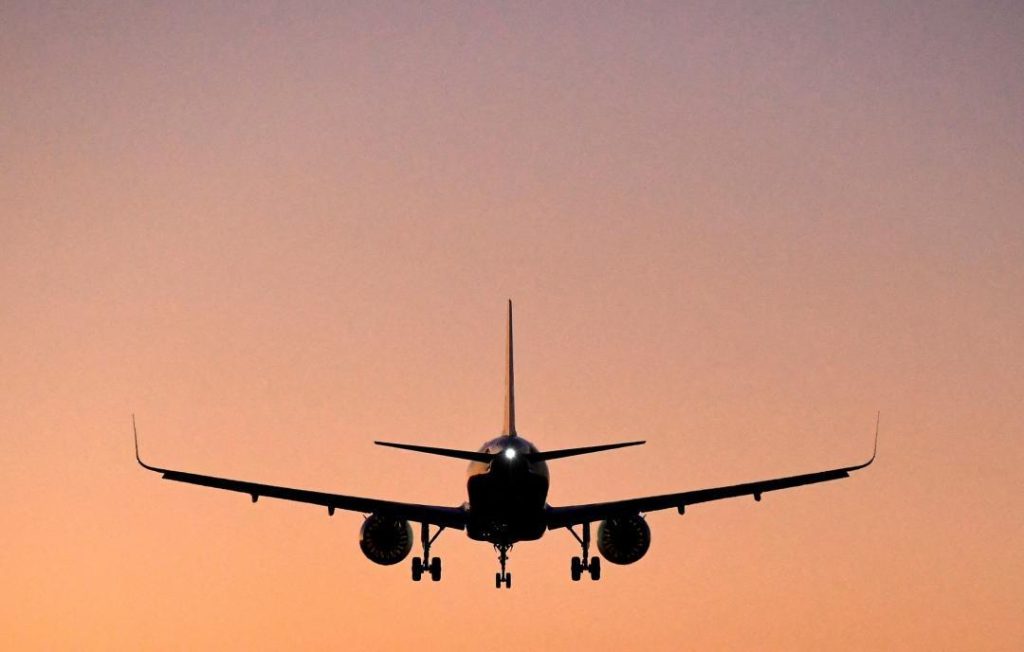
Which international airlines are avoiding Pak airspace amid tensions with India?
Tensions between India and Pakistan have been escalating over the past few years, with the latest developments taking place in May 2025. Amid this heightened tension, several international airlines have started to avoid Pakistani airspace to ensure the safety of their passengers and crew. The decision to avoid Pakistani airspace is not only a significant blow to the country’s aviation industry but also a major revenue loss.
In a recent development, Air France and Germany’s Lufthansa, two of the world’s largest airlines, have announced that their flights are avoiding Pakistani airspace. This decision comes amidst the ongoing tensions between India and Pakistan, which have been exacerbated by recent clashes across the Line of Control (LoC).
According to a report by Reuters, Lufthansa said that its flights are being rerouted to avoid Pakistani airspace, citing safety concerns. The airline’s decision to avoid Pakistani airspace is a significant blow to Pakistan’s aviation industry, as it is one of the country’s largest sources of revenue.
Air France, another major international airline, has also announced that it is avoiding Pakistani airspace. The airline’s decision to reroute its flights is a precautionary measure to ensure the safety of its passengers and crew. Air France’s decision to avoid Pakistani airspace is a significant loss for the country’s aviation industry, as the airline operates several flights to and from Pakistan every week.
However, Air France’s decision to avoid Pakistani airspace is not the only significant development in the aviation industry. Flight-tracking websites have also shown that several other international airlines, including British Airways, Swiss International Air Lines, and Emirates, are also avoiding Pakistan’s airspace.
The decision to avoid Pakistani airspace by these international airlines is likely to have a significant impact on the country’s aviation industry. Pakistan’s airspace is a critical route for many international airlines, and the loss of overflight fees is likely to be a major revenue loss for the country.
India and Pakistan closed their airspace for each other
The decision to avoid Pakistani airspace by international airlines comes amidst the ongoing tensions between India and Pakistan. The two countries have been engaged in a series of clashes along the LoC, which has led to a significant increase in tensions between the two nations.
In recent weeks, the Indian Air Force has carried out several airstrikes against alleged terrorist targets in Pakistan, which has led to a significant escalation in tensions between the two countries. Pakistan has responded by closing its airspace for Indian flights, and India has reciprocated by closing its airspace for Pakistani flights.
The closure of airspace by India and Pakistan has had a significant impact on the aviation industry, with several international airlines being forced to reroute their flights. The decision to close airspace has also led to a significant increase in travel times for passengers, as flights are now being forced to take longer routes to avoid Pakistani airspace.
Impact on Pakistan’s overflight fee earnings
The decision by international airlines to avoid Pakistani airspace is likely to have a significant impact on the country’s overflight fee earnings. Pakistan’s airspace is a critical route for many international airlines, and the country charges significant overflight fees to airlines that use its airspace.
The loss of overflight fees is likely to be a major revenue loss for Pakistan’s aviation industry. The country’s aviation industry is already facing significant challenges, including a lack of investment in infrastructure and a shortage of skilled pilots and technicians.
The loss of overflight fees is likely to exacerbate these challenges, making it even more difficult for Pakistan’s aviation industry to recover. The country’s aviation industry is also likely to face a significant brain drain, as pilots and technicians may seek employment with other airlines that can offer them better working conditions and higher salaries.
Conclusion
The decision by international airlines to avoid Pakistani airspace is a significant blow to the country’s aviation industry. The loss of overflight fees is likely to have a significant impact on the country’s economy, and the closure of airspace by India and Pakistan is likely to exacerbate the challenges faced by the country’s aviation industry.
In conclusion, the decision by international airlines to avoid Pakistani airspace is a significant development in the ongoing tensions between India and Pakistan. The loss of overflight fees is likely to have a significant impact on Pakistan’s aviation industry, and the country’s aviation industry is likely to face significant challenges in the coming years.






